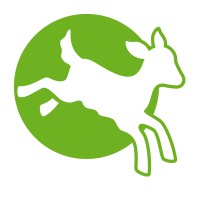Julia Johnson | Source | U.S. Corporate and Public Policy Manager at Compassion in World Farming

Julia Johnson
Julia Johnson, Head of Food Business for Compassion in World Farming U.S.A., works with major U.S. food businesses, supports strategy development, and manages the production of food business assets, all with the central objective of driving improvements in farm animal welfare and environmental sustainability in our food system. She is particularly interested in regenerative agriculture, transitional farming, and ensuring biodiversity in our ecosystems.
She holds a Master of Science in Anthrozoology from Canisius College, a Master of Divinity from Yale University, and a Bachelor of Arts from Michigan State University.
-

Compassion in World Farming
U.S. Corporate and Public Policy Manager
-
LaBelle Patrimoine signs on to Better Chicken Commitment
Cooks Venture, Perdue Farms, Pitman Farms and Wayne-Sanderson Farms are the other producers publicly committed to offering BCC chicken to customers.
Article -
“Produced In USA” Label for Meat Doesn’t Mean What You Think
The voluntary label has loopholes that you should know about the next time you shop for meat. Ranchers and experts break down the hidden truths behind the "Made in the USA" labels and the proposed legislative changes which, if passed, could help you know exactly where your meat is being raised.
Article -
The World Is Switching to Cage-Free Eggs Despite Inflation, Bird Flu
Companies are rapidly moving toward cage-free eggs despite the impacts of bird flu and inflation, according to Compassion in World Farming’s sixth annual EggTrack Report.
Article
-
“Corporations sell imported beef at lower prices which makes it more difficult for domestic farmers to compete, particularly [if they are selling] grass-fed products.”
-
"We are all part of a great, beautifully complex ecosystem, and what industrial farming has done is remove that synergy and instead focus on one sole outcome: efficiency. What you lose with this model, however, is the health of flora and fauna that evolved to work together in a symbiotic way where every piece of the puzzle played a crucial part.
"By returning animals to the land and allowing hooves and snouts to restore the earth, as we see with many regenerative farmers focused on sequestering carbon into the soil, microscopic mycelium to birds of prey begin to return to the land, rebalancing the ecosystem."

:max_bytes(150000):strip_icc()/GettyImages-1226561672-afbcb415c5044a45ad2d37e8429f512b.jpg)
